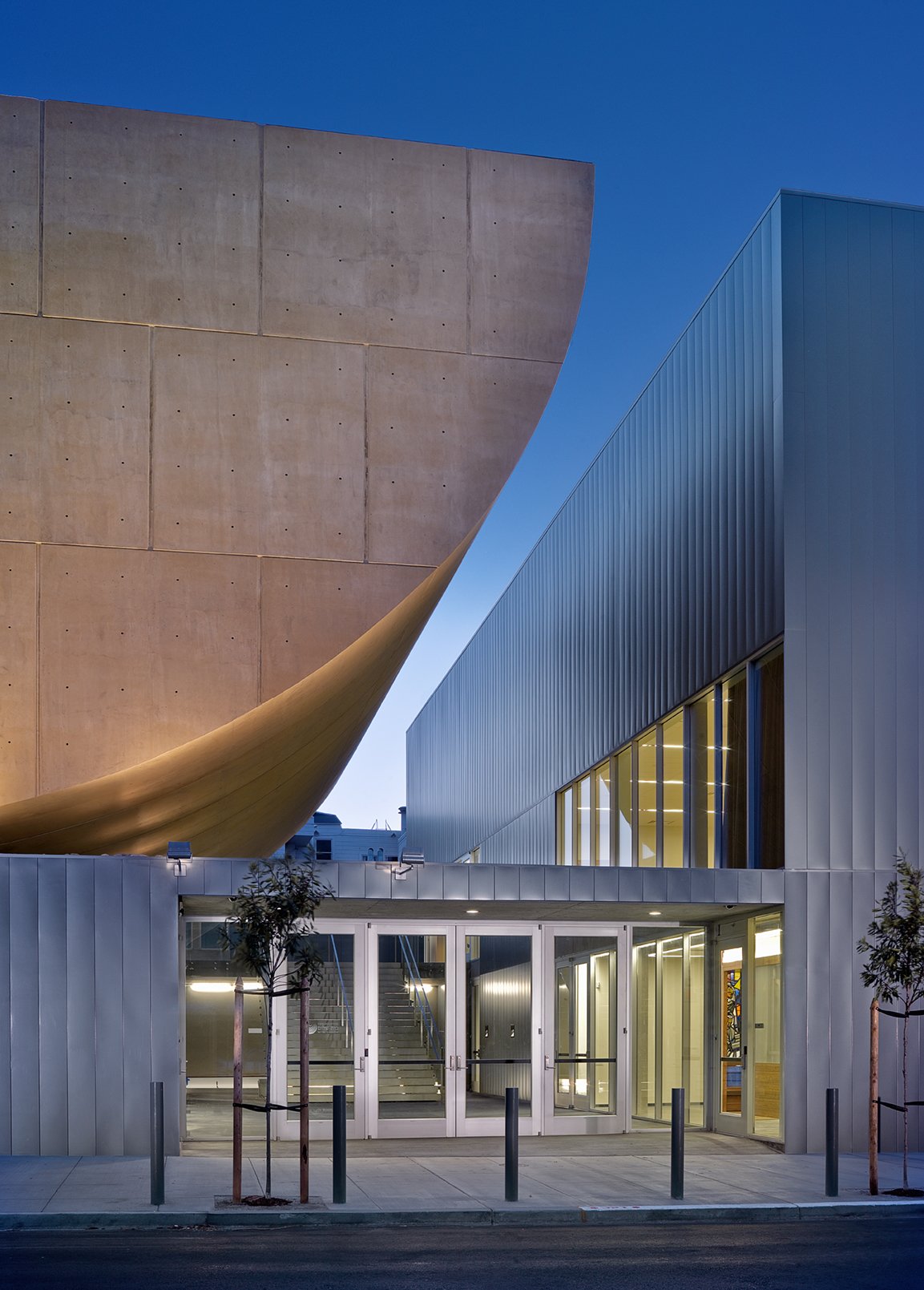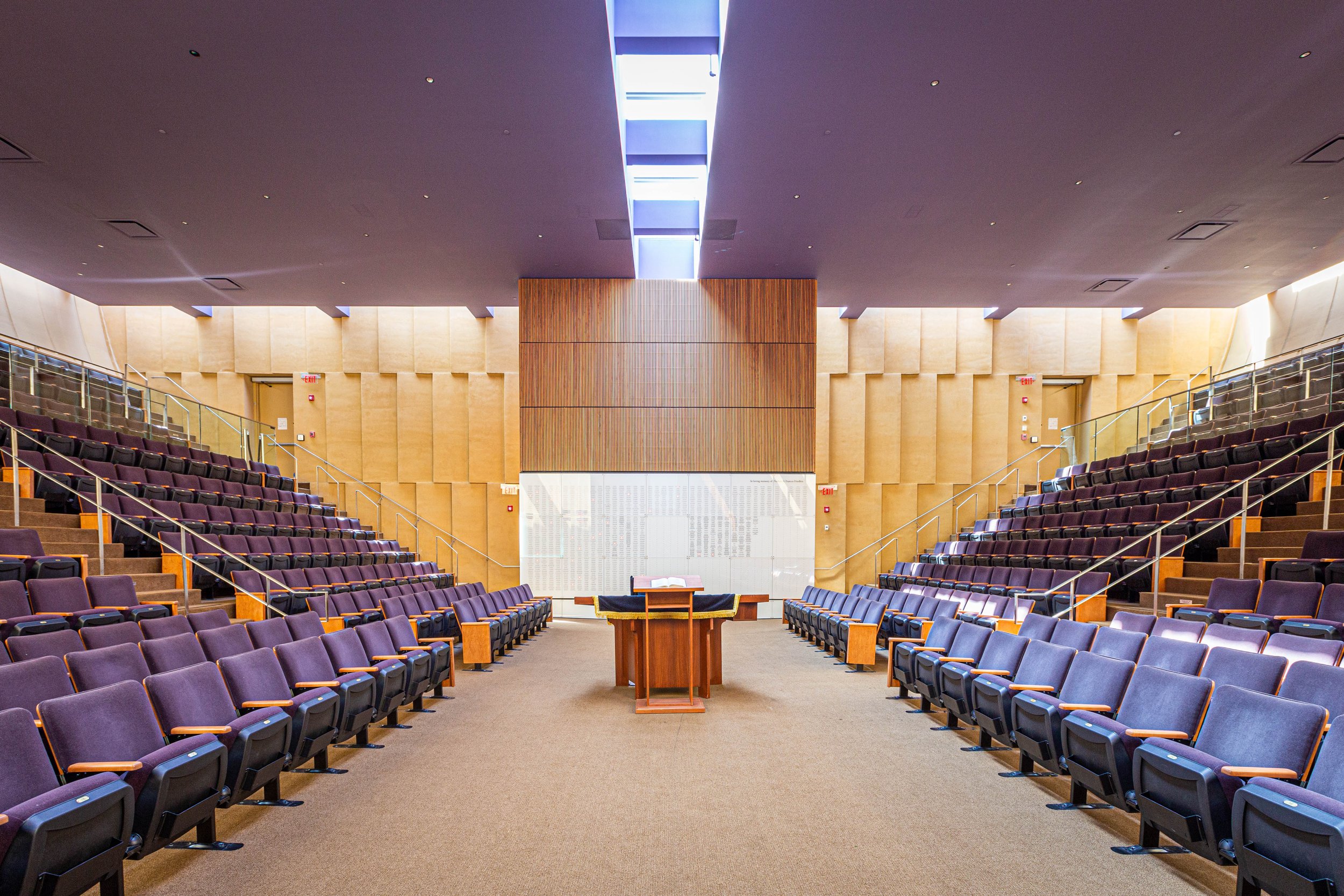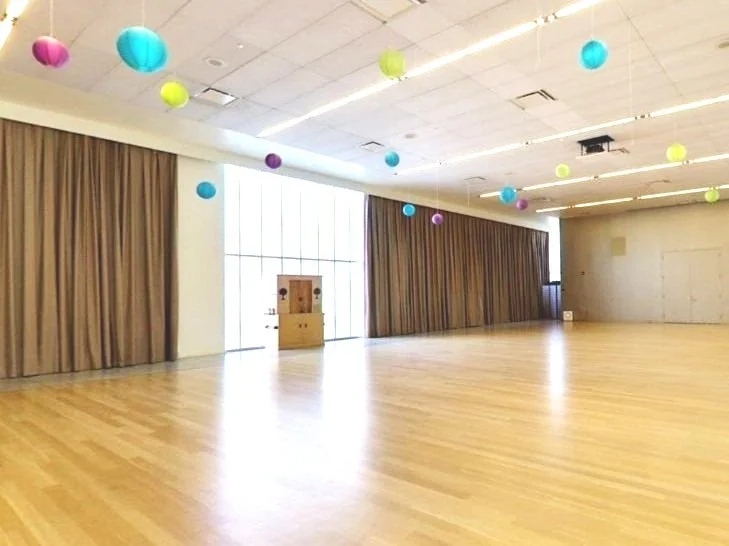
ABOUT BETH SHOLOM
-
CBS celebrates that no single approach to Judaism fits all. Personal choice is respected and the diversity of our community is nurtured. We also pride ourselves on being a safe and welcoming space for community members of all sexual orientations and gender expressions. For more than 350 households, Congregation Beth Sholom is home.
Office Hours
The CBS office is open to the public:
Monday – Thursday 9:00 a.m. – 4:00 p.m.
Fridays 9:00 a.m. – 3:00 p.m.As a courtesy to our staff, if you would like to meet with someone, please reach out to them ahead of time to schedule an appointment.
We have member-only and public events. Please see our full calendar for details.
Accessibility
Congregation Beth Sholom is a modern, ADA-compliant facility with two main levels. Our Sanctuary, Koret Hall and Eva Gunther Plaza are all on the second floor, and can be accessed by an elevator inside the hallway behind the main stairs.
Covering Our Head and Respecting Sacred Spaces
At Beth Sholom, we strive to take the rich tradition of the Jewish people and make it relevant to our modern and changing world. As an inclusive, egalitarian community, we have respect for all who gather with us in our holy prayer spaces. As a traditional sign of respect for the sanctity of the space and those gathered in it, it is the custom of our congregation, and therefore encouraged for all, to cover one's head upon entering any prayer space at Beth Sholom. We require all people who lead prayer, have an honor to the Torah or ark, or who stand at the amud (center table) to wear a head covering.* Thank you for respecting our valued traditions and the choices of those in our community.
*Head coverings can take many forms: traditional kippot, hats, scarves, lace doilies, etc.
-
The Early Years
Congregation Beth Sholom was unofficially founded in 1906, when the great earthquake forced many Russian Jewish émigrés to observe Rosh Hashanah that year in a Richmond District refugee camp. 17 men joined together to officially found Congregation Beth Sholom in October 1921. Services were held in a Baptist church on Fourth Avenue that the founders purchased and remodeled as a shul. Thirteen years later, in 1934, the cornerstone of Beth Sholom’s first synagogue was laid at the corner of 14th Avenue and Clement Street. That same year, Saul E. White (z”l) was installed as the first rabbi.
Rabbi White served as Congregation Beth Sholom’s rabbi for 48 years, until his retirement in 1983. He took stands on many major sociopolitical issues of his day and, under his leadership, CBS prospered and became a leading progressive voice in the Jewish community, advocating for women’s rights, the disadvantaged, and other social justice issues. Wearing his tallit and carrying a Torah, Rabbi White famously marched down Market Street as one of the Bay Area’s first clergymen to protest the Vietnam War. But Rabbi White was also a scholar so respected in the Jewish community that he earned the nickname “Dean of Bay Area rabbis.” One of his legacies is the Brandeis School of San Francisco, which Rabbi White founded in 1963, serving as its guiding spirit.
A Place of Learning and Growth
In the 1960s, Beth Sholom was the Bay Area pioneer in presenting scholarly lectures by educators, historians, and international personalities on Jewish topics and heritage. CBS also brought outstanding musical artists and prominent authors to the pulpit of the synagogue. Inspired by the success of these activities, an adult studies program evolved, featuring seminars by rabbis, authors, and local scholars. These activities were supplemented with classes in Hebrew, Yiddish, and current events.
Following Rabbi White’s retirement, Rabbi Allan Schranz (z”l) was elected to succeed him and, in 1986, Rabbi Alexander Graubart (z”l) became the third spiritual leader of Congregation Beth Sholom. Five years later, in 1991, Rabbi Alan Lew (z”l) stepped into the position.
A poet, writer, and practitioner of Zen Buddhism, Rabbi Lew exercised a profound influence on the congregation and the entire Bay Area Jewish and secular communities. While at CBS, Rabbi Lew cofounded the popular Jewish meditation center, Makor Or, with Zoketsu Norman Fischer. A formidable speaker, activist voice for social justice, and advocate for the homeless, Rabbi Lew was regarded by many as Beth Sholom’s spiritual heir to Rabbi White. Rabbi Lew retired in 2005 and served as the congregation’s rabbi emeritus until his untimely death in 2009.
Rabbi Kenneth Leitner served the congregation for two years until Rabbi Micah Hyman joined Beth Sholom in 2007. During his seven years at CBS, Rabbi Hyman was beloved for his infectious personality, engaging manner at the pulpit, and ability to relate to congregants of all ages.
Rabbi Aubrey Glazer served the congregation for four years, from July, 2014 to June, 2018. During his tenure, Rabbi Glazer led our congregation with a keen sensibility for the evolving nature of Jewish tradition, bringing new forms of music and other innovations to our communal life.
Rabbi Dan Ain became Beth Sholom’s spiritual leader in July of 2018. He brought a passion for developing meaningful ways to worship in the 21st century and was instrumental in maintaining our strong community in the face of a pandemic that challenged our ability to connect. Rabbi Ain found holiness in honest conversation, a value he instilled in many.
-
Rabbi Amanda Russell, who began with Congregation Beth Sholom as a Rabbinic Intern, is devoted to creating a warm, friendly and welcoming environment for everyone. Rabbi Russell strives to create opportunities to experience the joys of Judaism by making our rich traditions and values relevant in today’s world. Through prayer, song, learning and ruach, Rabbi Russell seeks to connect people of all ages and all backgrounds in meaningful ways to each other and to Torah.
While remaining committed to significant Jewish observance, the State of Israel, social activism, and egalitarianism, Beth Sholom has been a vanguard for change within the Conservative movement. It was among the first Conservative synagogues to provide women equal participation in all aspects of religious life — including aliyot (calls to Torah) and the daily minyan — and to recognize its LGBTQ members. Beth Sholom was also the first synagogue to house a Jewish meditation center.
-
Beth Sholom’s Sanctuary was completed in 2008, where many of our ritual services are held. The CBS building is energy efficient and technologically sophisticated, with functional spaces designed specifically for our needs as well as those of the greater community.
In 2001, the renowned San Francisco architect Stanley Saitowitz was selected to create a vision for Congregation Beth Sholom’s new spiritual home. Even before the project broke ground, Saitowitz’s design won Unbuilt Design honors from the San Francisco chapter of the American Institute of Architects.
FACILITY RENTALS
Many of the spaces below are available for private and public rentals. From Friday evening at sundown until Saturday evening at sundown, we are unable to host events that require use of electricity.
-

The Sanctuary
We gather in the Sanctuary as a community every Shabbat morning and on holidays. The dramatic space was designed with the layout of early synagogues in mind, which encouraged worshipers to daven (pray) in a communal way. The seating area of the Sanctuary sweeps up in an arc to the north and south of the bimah so that participants face one another as well as the service leaders, bringing the entire community together in song and prayer. The Sanctuary has a seating capacity of 586 people.
-

Koret Hall
Koret Hall is the synagogue’s main facility for shabbat kiddush, B’nai mitzvah, and wedding celebrations, along with other congregational and community events. The space comfortably seats 240 people for a sit-down luncheon or dinner (or 200 with dancing), and will accommodate over 410 people for films, lectures, and other events.
-

Gronowski Chapel
Congregation Beth Sholom has the distinction of being the only conservative synagogue in the bay area with daily minyans. Minyans are usually held in this chapel. The Gronowski Family Chapel incorporates many of our old sanctuary’s stained-glass windows, which depict the story of the Jewish people while also incorporating universal icons of emancipation.
-

Makom Shalom
This is a space for meditation, yoga, and other mindfulness practices. Makom Shalom is open each Shabbat for congregants and visitors to take advantage of some quiet, even if no formal service is being led. This space is most often used for Makor Or meditation retreats.
-

Eva Gunther Plaza
Eva Gunther Plaza, beautiful and peaceful in its own right, has become an extension of Koret Hall and, on occasion, the Sanctuary. During the Covid-19 pandemic, we learned how to fully utilize this space. If you visit us on a sunny Shabbat morning, you will find children playing along with congregants enjoying their Kiddush at outdoor seating. We have even set up our plaza as an outdoor prayer space. The plaza is perfect for your favorite outdoor events!
-

Main Meeting Room
The Main Meeting Room serves as a flexible gathering space for many of our small events: mah jongg, small Shabbat dinners, morning minyan coffee, film screenings, CBS Authors Series, happy hours and more!
ADDITIONAL FACILITY SPACES
Rainbow Courtyard
Take a 360° tour of this outdoor space situated between the Main Meeting Room and Koret Hall.
Rabin Library
The CBS Rabin Library features comfortable seating, study areas, and a gathering space for storytelling and other children’s programming. Our lending library is well-stocked with books on Jewish life, ritual, and thought.
Kosher Kitchen
Congregation Beth Sholom keeps a strict Kosher kitchen, under the supervision of our Rabbi. To reach the Rabbi for specific questions about our policies, please email rabbi@bethsholomsf.org.
Administrative Center
The Fields-Rayant Administrative Lobby welcomes congregants and visitors to our staff offices. This space is ready to welcome you five days per week during business hours and promises a cup of tea or coffee.
